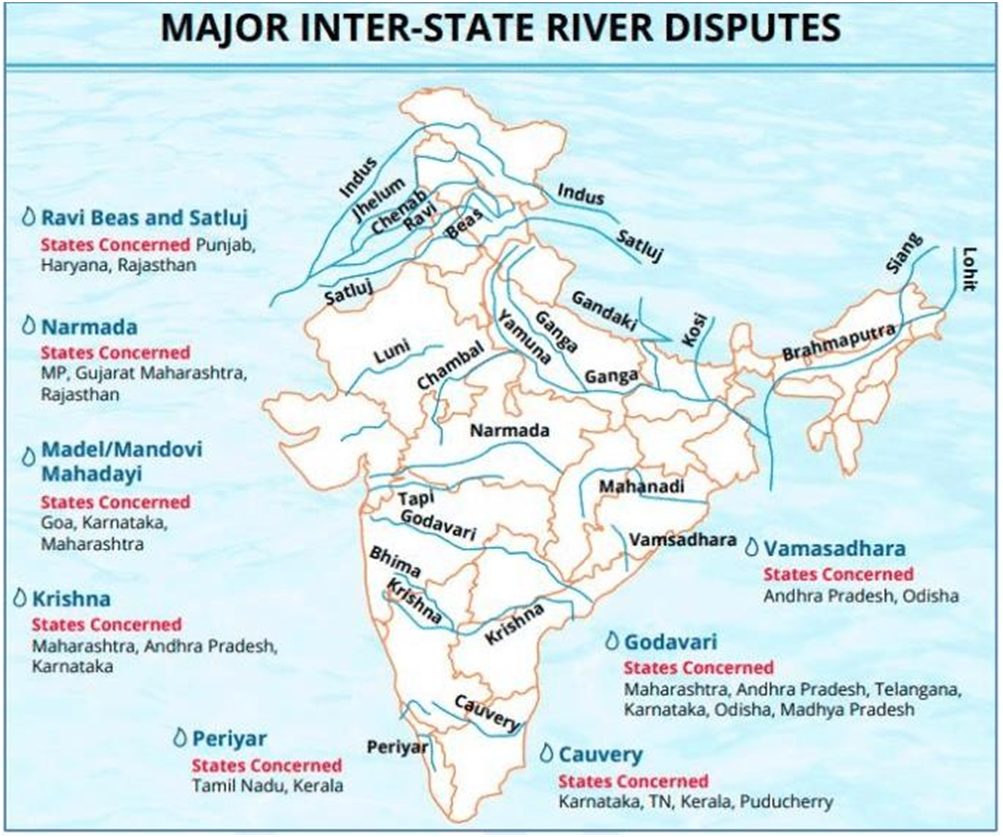
CSIP: PRELIMS BOOSTER SERIES – 66 POLITY/ INTERNAL SECURITY
INTER-STATE WATER DISPUTES
Inter-State Water Dispute in India involves conflicts over the use, distribution, and control of waters in inter-state rivers and river valleys. Constitutional provisions related to this issue are as follows:
1.Constitutional Provisions:
- Entry 17 (State List): This entry covers various aspects of water, including water supply, irrigation, canal management, drainage, embankments, water storage, and hydro power, giving states authority over these matters.
- Entry 56 (Union List): Entry 56 empowers the Union Government to regulate and develop inter-state rivers and river valleys as determined by Parliament in the public interest.
- Article 262: Article 262 provides the mechanism for resolving water disputes. It states that Parliament can enact laws for adjudicating
disputes related to inter-state rivers and river valleys, with the provision that neither the Supreme Court nor any other court can exercise jurisdiction in such matters.
2. Mechanism for Dispute Resolution:
- River Board Act, 1956: This act grants the Government of India the authority to establish boards for interstate rivers and river valleys in consultation with state governments. However, no river board has been established to date.
- Inter-State Water Dispute Act, 1956: This act outlines the process for resolving disputes. Initially, the Central Government attempts to mediate among aggrieved states. If unsuccessful, a tribunal may be constituted. Importantly, the Supreme Court can question the tribunal’s functioning but not its awards or formulas.
- Amendments in 2002: The Inter-State Water Dispute Act was amended in 2002, incorporating recommendations from the Sarkaria Commission. These amendments set strict timeframes for tribunal establishment and decision-making.
3.Measures to Resolve Water Disputes:
- Interstate Council: Water disputes could be brought under an interstate council established by the President under Article 263, promoting consensus-based decision-making.
- Promoting Efficiency: States should be encouraged to enhance water use efficiency, implement water harvesting, and recharge strategies to reduce reliance on river water.
- Single Water Management Agency: A unified agency for managing both ground and surface water, offering technical guidance at various administrative levels, can improve water conservation and management.
- Efficient Tribunals: Tribunals should be fast-tracked, technically adept, and equipped with enforceable verdict mechanisms within specified timeframes.
- Centralized Water Data: Developing a central repository for water data is crucial for informed decision-making. The central government should play a more active role in resolving disputes and ensuring data availability.

